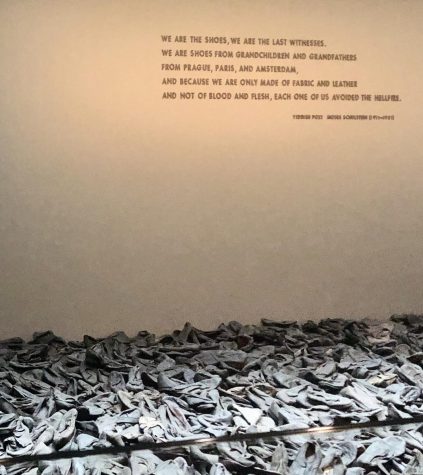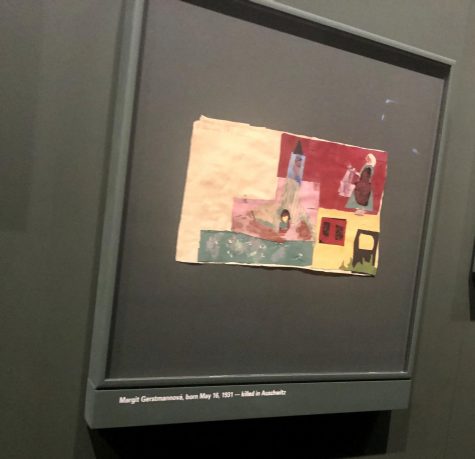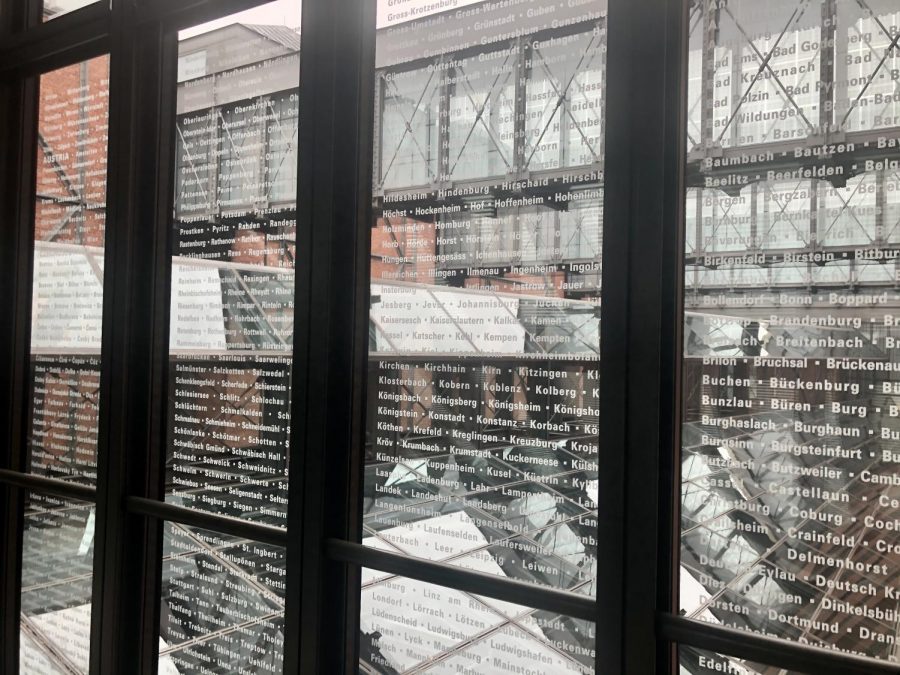Seniors Visit the Holocaust Museum
January 16, 2020
On December 17, 2019, the seniors of Dual Enrollment English visited the United States Holocaust Memorial Museum. The museum, opened in 1993, acts as a living memorial to the Holocaust and works to “confront hatred, prevent genocide, and promote human dignity,” according to their website.
The main and permanent exhibition, The Holocaust, displays photo and video evidence and artifacts to allow visitors a fully immersive insight into the progressive tragedy that spanned over a decade and resulted in the death of six million Jewish people, among other minorities. The exhibit is broken up into three sections on three floors: Nazi Assault (1933-1939), The “Final Solution” (1940-1945), and The Last Chapter (1945-). The museum also features other exhibits including Americans and the Holocaust, American Witnesses, One Thousand and Seventy-eight Blue Skies, Remember the Children: Daniel’s Story, and Syria: Please Don’t Forget Us.
According to Christina Vazquez, DE English 111 & 112 and AP English Language teacher at Briar Woods, “It is important for students to visit the Holocaust Museum in order to learn from the past. Elie Wiesel writes, ‘Listening to a witness makes you a witness.’ I firmly believe that once students are exposed to the dangers of genocide they now become witnesses to that type of cruelty that type and will stand up when they see others beaten down.”
Vazquez explains that English 112 is a course dedicated to analysis and thus she decided to have her students analyze and study genocides and the effects that they can have on communities for centuries. The students had the day to learn about the tragedy through visual and written artifacts whilst exploring the museum as well as enjoy traditional Jewish dishes in the museum cafeteria. Each student also received an “identification card”: a mini auto-biography of a Holocaust victim to help guests form a personal connection with those who suffered.
“The main point that I wanted my students to take away from the museum is that we all are responsible for the world we live in,” said Vazquez. “In his Nobel Peace Prize Acceptance Speech Wiesel stated, ‘One person-one person of integrity can make a difference, a difference of life and death.’ I think that each of my students can make a difference and it begins with educating them about the dangers of hate.”



